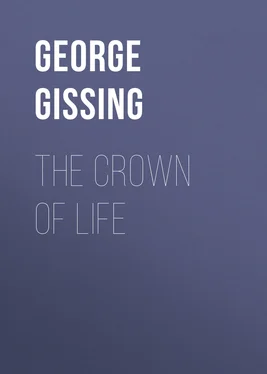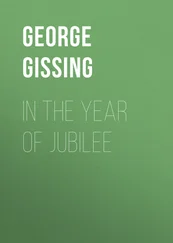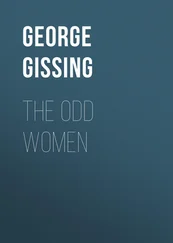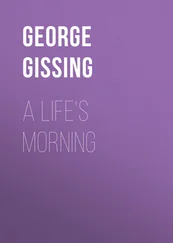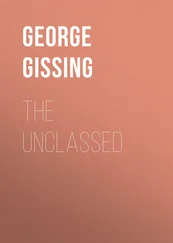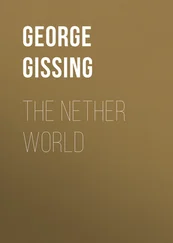George Gissing - The Crown of Life
Здесь есть возможность читать онлайн «George Gissing - The Crown of Life» — ознакомительный отрывок электронной книги совершенно бесплатно, а после прочтения отрывка купить полную версию. В некоторых случаях можно слушать аудио, скачать через торрент в формате fb2 и присутствует краткое содержание. Жанр: foreign_prose, literature_19, foreign_antique, на английском языке. Описание произведения, (предисловие) а так же отзывы посетителей доступны на портале библиотеки ЛибКат.
- Название:The Crown of Life
- Автор:
- Жанр:
- Год:неизвестен
- ISBN:нет данных
- Рейтинг книги:3 / 5. Голосов: 1
-
Избранное:Добавить в избранное
- Отзывы:
-
Ваша оценка:
- 60
- 1
- 2
- 3
- 4
- 5
The Crown of Life: краткое содержание, описание и аннотация
Предлагаем к чтению аннотацию, описание, краткое содержание или предисловие (зависит от того, что написал сам автор книги «The Crown of Life»). Если вы не нашли необходимую информацию о книге — напишите в комментариях, мы постараемся отыскать её.
The Crown of Life — читать онлайн ознакомительный отрывок
Ниже представлен текст книги, разбитый по страницам. Система сохранения места последней прочитанной страницы, позволяет с удобством читать онлайн бесплатно книгу «The Crown of Life», без необходимости каждый раз заново искать на чём Вы остановились. Поставьте закладку, и сможете в любой момент перейти на страницу, на которой закончили чтение.
Интервал:
Закладка:
He all but resolved to pack a travelling-bag and leave home at once. It seemed impossible to face Irene at luncheon.
When the bell rang, he stole, slunk, downstairs. Scarcely had he entered the dining-room, when he began an apology; after all, he could not go this afternoon; he must work; the sky had tempted him, but–
"Mr. Otway," said Irene, regarding him with mock sternness, "we don't allow that kind of thing. It is shameful vacillation—I love a long word—What's the other word I was trying for?—still longer—I mean, tergiversation! it comes from tergum and verso , and means turning the back. It is rude to turn your back on ladies."
Piers would have liked to fall at her feet, in his voiceless gratitude. She had rescued him from his shame, had put an end to all awkwardness, and, instead of merely permitting, had invited his company.
"That decides it, Miss Derwent. Of course I shall come. Forgive me for being so uncivil."
At lunch and during their long walk afterwards, Irene was very gracious to him. She had never talked with him in such a tone of entire friendliness; all at once they seemed to have become intimate. Yet there was another change less pleasing to the young man; Irene talked as though either she had become older, or he younger. She counselled him with serious kindness, urged him to make rational rules about study and recreation.
"You're overdoing it, you know. To-day you don't look very well."
"I had no sleep last night," he replied abruptly, shunning her gaze.
"That's bad. You weren't so foolish as to try to make up for lost time?"
"No, no! I couldn't sleep."
He reddened, hung his head. Miss Derwent grew almost maternal. This, she pointed out, was the natural result of nerves overstrained. He must really use common sense. Come now, would he promise?
"I will promise you anything!"
Olga glanced quickly at him from one side; Irene, on the other, looked away with a slight smile.
"No," she said, "you shall promise Miss Hannaford. She will have you under observation; whereas you might play tricks with me after I'm gone. Olga, be strict with this young gentleman. He is well-meaning, but he vacillates; at times he even tergiversates—a shocking thing."
There was laughter, but Piers suffered. He felt humiliated. Had he been alone with Miss Derwent, he might have asserted his manhood, and it would have been her turn to blush, to be confused. He had a couple of years more than she. The trouble was that he could not feel this superiority of age; she treated him like a schoolboy, and to himself he seemed one. Even more than Irene's, he avoided Olga's look, and walked on shamefaced.
The remaining days, until Miss Derwent departed, were to him a mere blank of misery. Impossible to open a book, and sleep came only with uttermost exhaustion. How he passed the hours, he knew not. Spying at windows, listening for voices, creeping hither and thither in torment of multiform ignominy, forcing speech when he longed to be silent, not daring to break silence when his heart seemed bursting with desire to utter itself—a terrible time. And Irene persevered in her elder-sister attitude; she was kindness itself, but never seemed to remark a strangeness in his look and manner. Once he found courage to say that he would like to know Dr. Derwent; she replied that her father was a very busy man, but that no doubt some opportunity for their meeting would arise—and that was all. When the moment came for leave-taking, Piers tried to put all his soul into a look; but he failed, his eyes dropped, even as his tongue faltered. And Irene Derwent was gone.
If, in the night that followed, a wish could have put an end to his existence, Piers would have died. He saw no hope in living, and the burden seemed intolerable. Love-anguish of one-and-twenty; we smile at it, but it is anguish all the same, and may break or mould a life.
CHAPTER VII
A week went by, and Piers was as far as ever from resuming his regular laborious life. One day he spent in London. His father's solicitor had desired to see him, in the matter of the legacy; Piers received his money, and on the same day made over one hundred and fifty pounds to Daniel Otway, whom he met by appointment; in exchange, Daniel handed him a beautifully written I.O.U., which the younger brother would pocket only with protest.
Another week passed. Piers no longer pretended to keep his usual times; he wandered forth whenever home grew intolerable, and sometimes snatched his only sleep in the four-and-twenty hours under the hawthorn blossom of some remote meadow. His mood had passed into bitterness. "I was well before; why did she interfere with me? She did it knowing what would happen; it promised her amusement. I should have kept to myself, and have been safe. She waylaid me. That first meeting on the stairs–"
He raged against her and against all women.
One evening, towards sunset, he came home dusty and weary and with a hang-dog air, for he had done something which made him ashamed. Miles away from Ewell thirst and misery had brought him to a wayside inn, where—the first time for years—he drank strong liquor. He drank more than he needed, and afterwards fell asleep in a lane, and woke to new wretchedness.
As he entered the house and was about to ascend the stairs, a voice called to him. It was Mrs. Hannaford's; she bade him come to her in the drawing-room. Reluctantly he moved thither. The lady was sitting idle and alone; she looked at him for a moment without speaking, then beckoned him forward.
"Your brother has been here," she said, in a low voice not quite her own.
"Daniel?"
"Yes. He called very soon after you had gone out. He wouldn't—couldn't stay. He'll let you know when he is coming next time."
"Oh, all right."
"Come and sit down." She pointed to a chair next hers. "How tired you look!"
Her tone was very soft, and, as he seated himself, she touched his arm gently. The room was scented with roses. A blind, half-drawn on the open window, broke the warm western rays; upon a tree near by, a garden warbler was piping evensong.
"What is it?" she asked, with a timid kindness. "What has happened? Won't you tell me?"
"You know—I am sure you know–"
His voice was choked into silence.
"But you will get over it—oh, yes, you will! Your work–"
"I can't work!" he broke out vehemently—"I shall never work again. She has changed all my life. I must find something else to do—I don't care what. I can't go in for that examination."
Then abruptly he turned to her with a look of eagerness.
"Would it be any use? Suppose I got a place in one of the offices? Would there be any hope for me?"
Mrs. Hannaford's eyes dropped.
"Don't think of her," she answered. "She has such brilliant prospects—it is so unlikely. You think me unsympathetic—oh, I'm not!" Again she let her fingers rest on his arm. "I feel so much with you that I daren't offer imaginary hopes. She belongs to such a different world, try, try to forget her."
"Of course I know she cares and thinks nothing about me now. But if I made my way–"
"She will marry very early, and someone–"
With an upward movement of her hand the speaker, was sufficiently explicit. Otway, he knew not why, tried to laugh, and frightened himself with the sound.
"She is not the only girl, good and beautiful," Mrs. Hannaford continued, pleading with him.
"For me she is," he replied, in a hard voice. "And I believe she will be always."
For a minute or two the little warbler sang in silence, then Piers, of a sudden, stood up, and strode hastily away.
Mrs. Hannaford fell into reverie. Her daughter was in London to-day, her husband absent somewhere else. But she had not been solitary, for Daniel Otway, failing to meet his brother, lingered a couple of hours in the drawing-room. As she sat dreaming under the soft light, her face relieved for the moment of its weariness and discontent, had a beauty more touching than that of youth.
Читать дальшеИнтервал:
Закладка:
Похожие книги на «The Crown of Life»
Представляем Вашему вниманию похожие книги на «The Crown of Life» списком для выбора. Мы отобрали схожую по названию и смыслу литературу в надежде предоставить читателям больше вариантов отыскать новые, интересные, ещё непрочитанные произведения.
Обсуждение, отзывы о книге «The Crown of Life» и просто собственные мнения читателей. Оставьте ваши комментарии, напишите, что Вы думаете о произведении, его смысле или главных героях. Укажите что конкретно понравилось, а что нет, и почему Вы так считаете.
